Evaluating Country Programmes - OECD Online Bookshop
Evaluating Country Programmes - OECD Online Bookshop
Evaluating Country Programmes - OECD Online Bookshop
Create successful ePaper yourself
Turn your PDF publications into a flip-book with our unique Google optimized e-Paper software.
<strong>OECD</strong> 1999<br />
<strong>Country</strong> Programme Evaluations Workshop: The Case of Tanzania<br />
Partnership. As a result of its past crisis (1994-95), the Government of Tanzania<br />
together with aid donors are developing a new partnership strategy, replacing the<br />
traditional donor-recipient roles and aiming at a broader relationship based on<br />
mutual long-term interest and interdependence. The aim is to enhance Tanzanian<br />
human capacity, its ownership of development activities, its prioritisation, based<br />
on demand and not driven by external partners, and its inclusion in the development<br />
process, as well as the conduct of a transparent dialogue.<br />
Review of the country programme 1993-98<br />
The external assessment of the CP that took place in February 1998 has produced<br />
major findings, conclusions and recommendations, which are summarised<br />
below.<br />
Areas of strengths. Regarding the SDC’s poverty alleviation goal, importance<br />
was given to the improvement of service delivery at regional and district levels,<br />
including the related capacity-building, in order to redress the previous deteriorating<br />
provision of public services. The Swiss contribution had a positive impact on the development<br />
of reforms in the health and infrastructure sectors and on the co-ordination of<br />
stakeholders in order to develop a strategic and institutional framework for a better<br />
management of the road network. The SDC’s facilitation of the creation of health<br />
boards at village and district levels contributed to the communities’ empowerment<br />
and participation in the management of health facilities.<br />
Areas of weaknesses. In regard to the programme’s management, the disconnection<br />
between the programme and the project level denied the programme of<br />
basic feedback from field experiences and resulted in a lack of sharing information,<br />
lessons learned and innovations between partners at all levels. Weak strategic orientations<br />
in the CP resulted in a project approach rather than a programme approach,<br />
and partly explains the failure to define a clear concept for the income generation<br />
programme. Basic co-operation principles (participatory and decentralised development,<br />
capacity-building, sustainability, etc.) were insufficiently elaborated and operationalised<br />
as was, in particular, the gender issue for which the non-formulation of a<br />
clear intervention strategy provoked numerous misunderstandings.<br />
Major conclusions to be drawn from the evaluation are twofold:<br />
a) Concerning the programme’s management: the need of a bottom-up management<br />
and planning approach; the need to take greater advantage of field<br />
experiences and mutual learning to strengthen cross-sectoral synergies and<br />
the effectiveness of policy dialogue; the formulation of measurable objectives<br />
in the CP and the Action Plans (APs).<br />
b) Concerning the programme’s activities: the need for placing communities at<br />
the centre of project conception and design; the development of strategies<br />
and locally adapted guidelines for the integration of gender-balanced development<br />
into the programmes and the projects.<br />
135





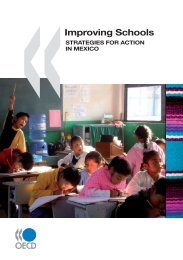
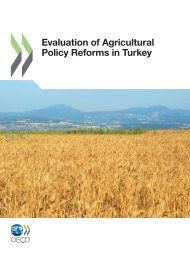

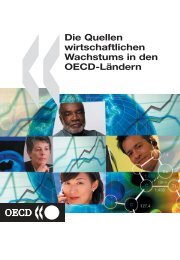
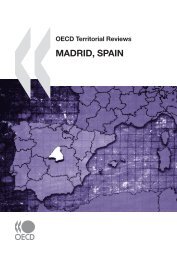



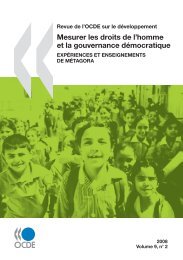
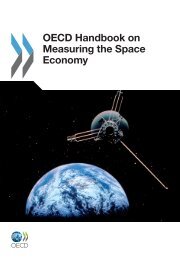
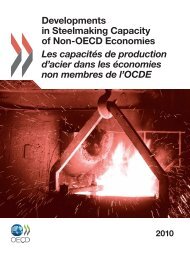

![CQE=U]^\]Z: KAZAKHSTAN - OECD Online Bookshop](https://img.yumpu.com/3915768/1/190x253/cqeuz-kazakhstan-oecd-online-bookshop.jpg?quality=85)